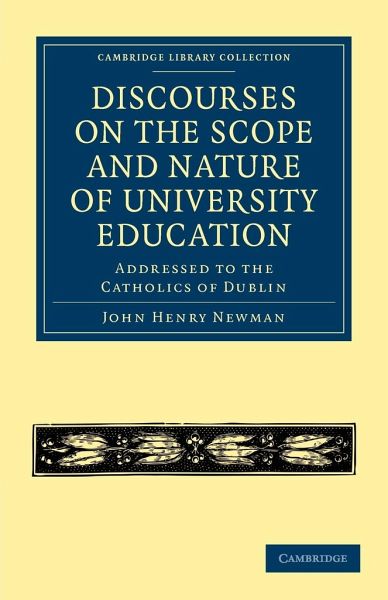
Discourses on the Scope and Nature of University Education
Versandkostenfrei!
Versandfertig in 1-2 Wochen
55,99 €
inkl. MwSt.

PAYBACK Punkte
28 °P sammeln!
Throughout his career as a theologian, deacon, priest and cardinal, John Henry Newman (1801-1890) remained a committed believer in the value of education. A graduate of Trinity College, Oxford, his own academic experiences shaped his friendships, politics and faith. His Discourses (1852), delivered initially as a series of lectures when he was rector of the newly-established Catholic University of Ireland, inspired a generation of young and talented Catholic scholars. Providing an intelligent but accessible analysis of the relationship between theology and other academic disciplines, the lectu...
Throughout his career as a theologian, deacon, priest and cardinal, John Henry Newman (1801-1890) remained a committed believer in the value of education. A graduate of Trinity College, Oxford, his own academic experiences shaped his friendships, politics and faith. His Discourses (1852), delivered initially as a series of lectures when he was rector of the newly-established Catholic University of Ireland, inspired a generation of young and talented Catholic scholars. Providing an intelligent but accessible analysis of the relationship between theology and other academic disciplines, the lectures were celebrated in the popular press for dispensing instruction to those who 'had no traditions to guide them in forming a correct estimate of what a university ought to be'. Newman argued that a university should foster the 'diffusion and extension of knowledge' rather than religious or moral training, and that it should prepare students for life in the world.




